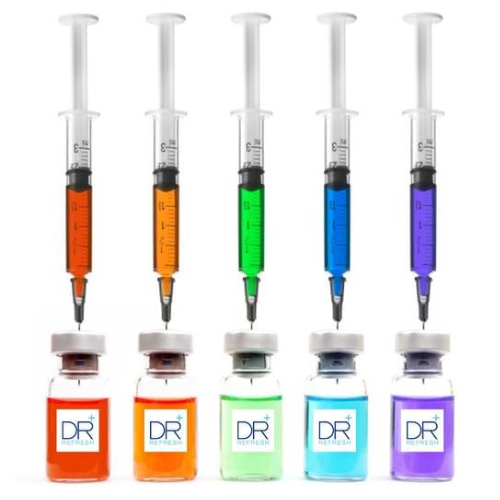Glutathione: An Essential Antioxidant for Optimal Health
Glutathione is a tripeptide consisting of three amino acids: cysteine, glycine, and glutamic acid. It is produced by the body naturally and is present in every cell. Glutathione is one of the most important antioxidants in the body, which helps to protect the body from damage caused by free radicals, toxins, and environmental stressors.
Benefits of Glutathione:
- Immune System Support: Glutathione is essential for proper immune system function. It helps to enhance the activity of natural killer cells, T cells, and B cells, which are responsible for fighting infections and diseases.
- Detoxification: Glutathione plays a vital role in detoxifying the body by binding to toxins, heavy metals, and carcinogens, and removing them from the body through urine or bile.
- Anti-Aging: Glutathione helps to neutralize free radicals that cause damage to cells, which can lead to premature aging. It also supports the body’s natural antioxidant defense system, which helps to protect against age-related diseases.
- Skin Health: Glutathione has been shown to improve skin health by reducing the appearance of fine lines, wrinkles, and age spots. It also helps to protect the skin from UV damage and supports the production of collagen.
Glutathione is often referred to as the “master antioxidant” because it plays a critical role in protecting the body from damage caused by free radicals and oxidative stress.
Free radicals are unstable molecules that can cause damage to cells, DNA, and tissues in the body. This damage can lead to chronic diseases and accelerate the aging process. Glutathione acts as an antioxidant by neutralizing free radicals, which helps to prevent this damage and maintain the health of cells and tissues.
In addition to its role as an antioxidant, glutathione also plays a vital role in supporting the immune system and detoxification processes in the body. It helps to enhance the activity of immune cells and support the elimination of toxins and harmful substances from the body.
Glutathione plays a crucial role in supporting the liver’s ability to detoxify harmful substances and regenerate damaged tissues. The liver is responsible for processing toxins and waste products, and this process can generate free radicals and oxidative stress, which can lead to liver damage.
Glutathione is a critical component of the liver’s detoxification process, as it helps to bind to and eliminate toxins and other harmful substances from the body. It also helps to protect liver cells from oxidative stress by neutralizing free radicals and preventing further damage.
Research has shown that individuals with liver disease, including hepatitis, cirrhosis, and nonalcoholic fatty liver disease, often have low levels of glutathione in the liver. This deficiency can impair the liver’s ability to detoxify and repair itself, which can lead to further damage and inflammation.
Supplementing with glutathione has been shown to increase glutathione levels in the liver and improve liver function in individuals with liver disease. Additionally, research suggests that glutathione may help to reduce inflammation, improve blood flow, and promote the regeneration of liver cells.
In summary, glutathione plays an essential role in supporting the liver’s ability to detoxify and repair itself. By increasing glutathione levels in the liver, individuals with liver disease may be able to improve liver function and reduce inflammation, leading to better overall health.
Overall, glutathione’s powerful antioxidant activity, immune system support, and detoxification benefits make it an essential nutrient for optimal health, earning it the nickname of “master antioxidant.”
Costs of Glutathione:
Glutathione supplements can be expensive, and the cost may vary depending on the quality and dosage of the supplement. Some people may also require regular injections of glutathione, which can add to the overall cost.
The cost of glutathione treatment can vary depending on the form of treatment and the location of the clinic or provider.
For example, intravenous (IV) glutathione treatments can range from $50 to $200 per session, with some providers offering packages for multiple treatments at a discounted rate. Oral glutathione supplements can cost anywhere from $20 to $100 per month, depending on the brand and dosage. Topical glutathione creams or serums can also range in price, with some products costing around $50 to $100 for a month’s supply.
It’s important to note that the cost of glutathione treatment may not be covered by insurance, as it is often considered a complementary or alternative treatment. It’s best to consult with a healthcare provider or a trusted provider of glutathione treatment to discuss the options, the associated costs, and any potential risks or benefits.
What Does Glutathione Do for You?
Glutathione is a powerful antioxidant that helps to protect the body from damage caused by free radicals, toxins, and environmental stressors. It supports the immune system, enhances detoxification, and helps to protect against age-related diseases. Glutathione also helps to improve skin health and supports the production of collagen.
In conclusion, glutathione is an essential antioxidant for optimal health. While it is produced naturally by the body, supplementing with glutathione can provide additional benefits, especially for those with low levels of glutathione. It is important to consult with a healthcare professional before taking any supplements, as glutathione supplements may interact with certain medications.
